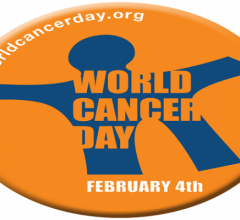April 16, 2009 – In a policy statement released today, The European Association of Urology (EAU) said current data on prostate cancer is insufficient to recommend the adoption of population screening for prostate cancer as a public health policy due to the large over-treatment effect.
The conclusion was based on the results of the European Randomised Study for Screening of Prostate Cancer (ERSPC).
In summary, the ERSPC reports on a relative prostate cancer mortality reduction of at least 20 percent by PSA-based population screening in 162,000 asymptomatic men aged 55-69 years. For every prostate cancer death prevented, 1,410 men have to undergo screening, while 48 are needed to be treated in excess of the control group population to save one prostate cancer death. Results of the PLCO (Prostate, Lung, Colon and Ovary) U.S. randomized study of screening were also published in the same issue of the NEJM (Andriole et al, NEJM 2009) and to date show no significant effect of screening on mortality from the disease, but suffered from a significant level of contamination in the control arm. The study continues.
The EAU adopts the conclusions of the ERSPC study and recognizes the benefit of screening in terms of mortality reduction, as well as the adverse effects of overdiagnosis and overtreatment of prostate cancers which could be quantified for the first time in the setting of a randomized screening study. Further publication of relevant data is awaited from the ERSPC group in due course to inform the debate.
The EAU statement is as follows:
- Prostate cancer is a major health problem, and one of the main causes of male cancer deaths. However, current published data are insufficient to recommend the adoption of population screening for prostate cancer as a public health policy due to the large overtreatment effect. Before screening is considered by national health authorities, the level of current opportunistic screening, overdiagnosis, overtreatment, quality of life, costs, and cost-effectiveness should be taken into account.
- Overdiagnosis of prostate cancer leads potentially to significant overtreatment. Health professionals, especially urologists, should avoid overtreatment by developing safe methods of cancer surveillance/monitoring without invasive therapy. Invasive therapies
should be tailored to patients' needs and the prognosis of cancers diagnosed.
- Current screening algorithms are insufficient due to a lack of specificity and lack of selectivity for aggressive cancers which require treatment. The development of novel diagnostic and prognostic markers and imaging modalities is needed urgently to enhance the predictive value of screening tools.
- In the absence of population screening, the EAU advises men who consider screening by PSA testing and prostate biopsy to obtain information on the risks and benefits of screening and individual risk assessment.
-The EAU and the ERSPC study group represent essential European stakeholders to further develop health strategies for prostate cancer screening.
- The EAU promotes the quality of care for prostate cancer patients in Europe in collaboration with the patient support organization Europa Uomo (http://www.europa-uomo.org) through the development of information and guidelines.
- The EAU wishes to support and foster research needed to develop reliable active surveillance protocols for low-risk prostate cancers, prognostic markers, and targeted therapies in order to deliver optimal patient care.
For more information: www.uroweb.org/


 September 07, 2023
September 07, 2023 






